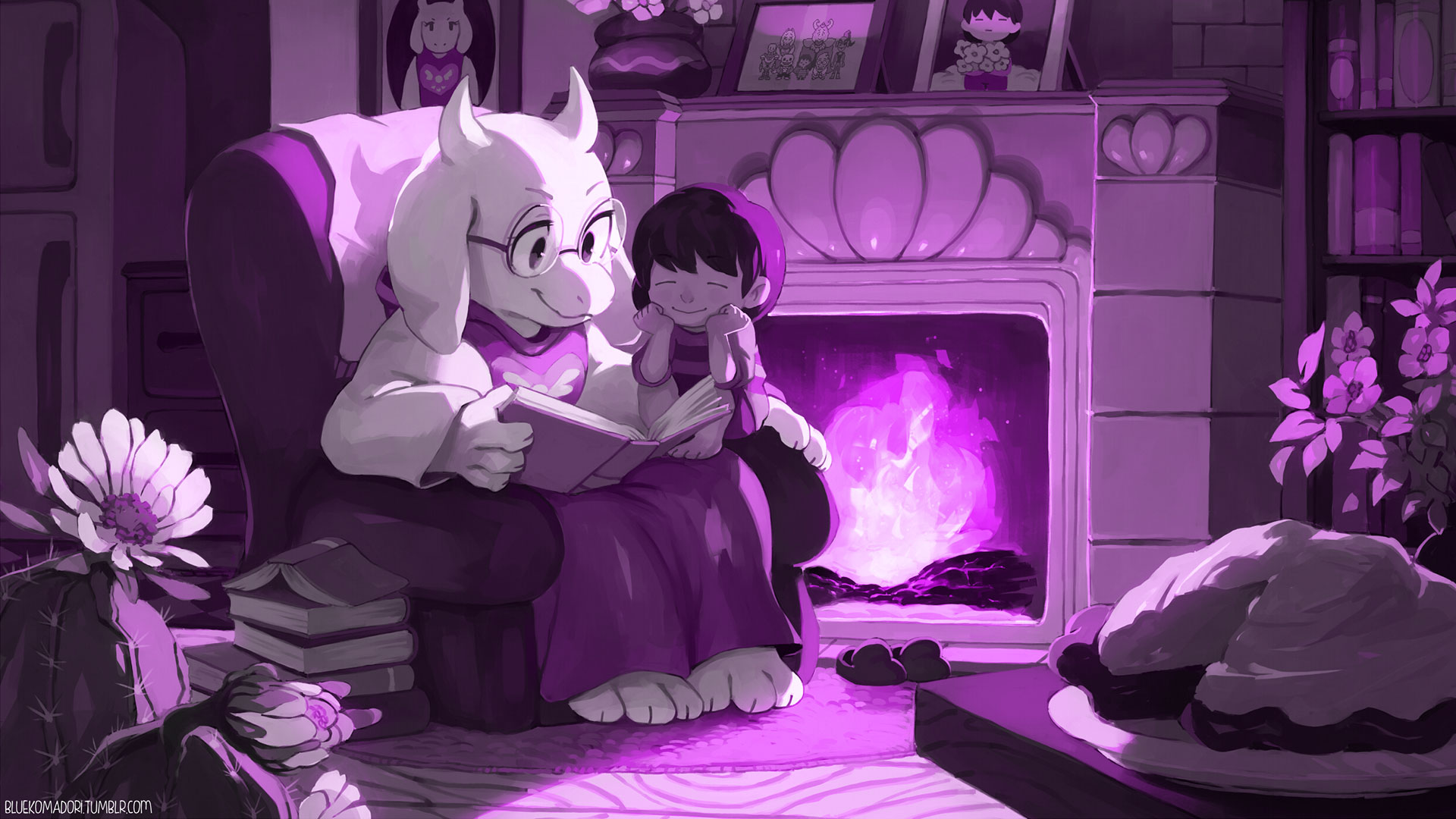Regrets and Guilt in Undertale – Lettre ouverte à Joel Couture
I killed Toriel. Twice, during my first neutral route and during the genocide route which is the worst videogame experience I have had. I will always remember these emotions of disgust while killing such a loveable character. Since I have played Undertale, I have never allowed myself to do such things in other games when it’s unnecessary but I learned that paying a high price.
During my first Playthrough, I didn’t find out how to avoid killing her. After 3 or 4 times pressing the “mercy” button, I thought that there was no other way to keep on playing the game. That was my first mistake. Then, still during this first Playthrough, I decided to avoid killing any characters except for monsters. Yes, I know they all are monsters, but still, Sans, Papyrus and Undine were different – your typical double standard, we may agree. So, even though I didn’t kill any other bosses than Toriel, I still ended up killing some monsters, few… But when I say “few”, I just try to minimize my murderous behavior. I try to convince myself I am not that bad.
This is what undertale taught me. I learned that I am your average monster, not one belonging to the underground of Undertale though. No, I am a player. I am used to game mechanics and I don’t think responsible for whatever happened in fictive worlds. When I play, I want to experiment whatever I want or is allowed. This behavior is average I guess. We could even agree that it is mainstream. We may not agree about whether games make us violent or sexist or whatever but we may agree that they tend to reproduce, gamify, behaviors we, as humans, have in the real world. We kill in the real world, we kill in videogames. We misbehave and cheat IRL, so we do in videogames. Point is that we consider these behaviors we have while playing: “fun, laughable, enjoyable, etc”. “it’s just a game, yeah ! I don’t have to feel responsible”. Undertale makes you responsible. It makes you feel guilty when you kill these friendly creatures that live in the welcoming world of the underground. In the same time, it amazingly rewards you when you do goods. Hence, the game design tends to invite you not to kill anyone: “just strike a friendly conversation”. These words pronounced by Toriel weren’t enough to make me stop playing when the game asked me to do so.
Joel Couture, in his book, explains how we, as gamers, feel guilty for playing Undertale as Gamers and not as Humans. His main thesis is that Toby Fox, Undertale creator, worked his fiction and the characters so players create strong bonds of friendship. In order to present this interpretation, Couture speaks about how he played Undertale and I deeply loved his testimony. I now know that I am not the only monster and some other gamers now feel as guilty as I do. This book strongly echoed to the experience I had. I do believe it will echo to a lot of its readers.
Couture decided to chronologically present his Playthrough. Telling it that way helps us to understand how he arrived to his conclusions which evolve around friendship, betrayals and guilt. Fox wants to make us understand that we are ethically responsible for what we do in games. Miguel Sicart would be happy to hear that, I guess. So he designed his game so we repeat it at least 2 times (for the Humans who played it) or 3 times (for the horrible monsters he and I are). “Fallen down” shows us how Undertale moved us and taught us a very strong life lesson. I think Joel may agree with me on that point. In the same time, I like considering this book as a love letter to this wonderful game. Each page is full of kindness and respect for this chef d’oeuvre and its creator. If you loved Undertale as much as we do: read this book. I bet it will echo to your experience too.
Dear Joel, this might not surprise you if I directly speak to you but I want to clearly say that I was deeply moved by your book. It amazed me how you depicted your experience. At first, I thought “oh, this is a guy who projects himself onto other players” but then, while reading it, I started to say “ho, I’ve experienced that”, “I did the same thing” or “wow, I feel the same way as he does”. The way you wrote your book, sincere and humble, is, to my opinion, the best way to share feelings. I was surprised, when reading the last pages, to remember my own experience so well I almost got tears in my eyes.
Joel, thanks you for testimony, the ideas you develop and your kindness. We both know why we regret what we did but if we meet one day, I’ll be glad to offer you a slice of Butterscotch Pie. Maybe it will ease our burden. ■
Esteban Grine, 2017.







Laisser un commentaire